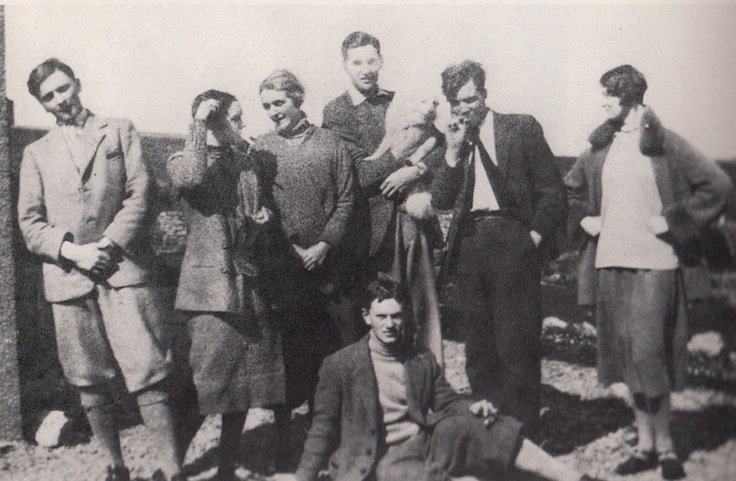Legacy of the Mitford Family and Bright Young Things in Waugh's Works

In a retrospective look at the enduring legacy of the Mitford family, the glamorous cohort known as the 'Bright Young Things,' and the significant influence of Evelyn Waugh's literary contributions, WWD has unveiled a collection of archival pieces that highlight the unique intersection of celebrity, social commentary, and cultural impact from the early to mid-20th century. This exploration, published on June 17, 2025, encapsulates the vibrant and often scandalous world of British high society, as seen through the eyes of its most notable figures.
The Mitford sisters—Nancy, Jessica, Pam, Diana, Unity, and Deborah—were emblematic of a bygone era, capturing public fascination with their engaging personalities and controversial lives. According to Dr. Elizabeth M. McCarthy, a cultural historian at the University of Cambridge, the Mitfords represented a complex blend of social privilege and radical thought, with each sister adopting distinct political and personal ideologies that reflected the tumultuous political landscape of their time. 'The sisters' lives were a dramatic tapestry woven with threads of rebellion, loyalty, and the pursuit of identity,' McCarthy noted in her 2022 book, *Sisters in Scandal: The Mitfords' Legacy*.
Evelyn Waugh, a contemporary of the Mitfords, captured this zeitgeist in his satirical novels, particularly in *Vile Bodies*, which portrays the frivolity of the 'Bright Young Things.' Stephen Fry, who adapted *Vile Bodies* into a film titled *Bright Young Things*, remarked in a 2004 interview with WWD, 'The allure of the Bright Young Things is their unfiltered zest for life, yet today’s social gatherings lack the authentic charm that defined their era.' Fry's adaptation serves as a cinematic homage to a social class characterized by excess and uncertainty, resonating with modern audiences who often romanticize the past.
The archival pieces referenced in WWD include interviews with Nancy Mitford, who, in a 1965 conversation, expressed her disdain for contemporary culture, stating, 'I have never been to a nightclub and do not understand the appeal of the Beatles.' This resistance to modernity highlights the Mitfords' enduring relevance as symbols of a more elegant, if not antiquated, societal framework. Further, Diana Mosley, known for her controversial political affiliations, famously stated, 'The press decides on certain families and writers about them without much reason, really,' a sentiment that underscores the role of media in shaping public perception.
Jessica Mitford, the most politically outspoken sister, made her mark with her 1973 publication, *Kind and Usual Punishment: The Prison Business*, where she argued for prison reform. Her radical views resonated with many, as noted by Dr. Samuel T. Hayes, a professor of sociology at Yale University, who stated, 'Mitford’s work opened dialogues about justice and the societal structures that create crime.'
The fascination with the Mitfords and Waugh's works extends beyond mere nostalgia; it reflects a societal yearning for authenticity in an age dominated by commercialism. Deborah Cavendish, the youngest Mitford sister, shared in a 2010 interview with WWD, 'We were all aware of our roles and the expectations placed upon us, but we sought to live authentically amid the chaos of our times.' This perspective resonates with contemporary discussions around identity and societal norms.
In summation, the archival coverage by WWD serves as a vital reminder of the cultural and historical significance of the Mitford sisters and Evelyn Waugh’s literary legacy. As we navigate a world increasingly influenced by digital interactions, the experiences and narratives of these remarkable figures prompt a re-examination of social dynamics, identity, and the nature of influence in both past and present contexts. The 'Bright Young Things' may have faded into history, but their impact continues to inspire dialogue about what it means to live with purpose and authenticity in an evolving society.
Advertisement
Tags
Advertisement





